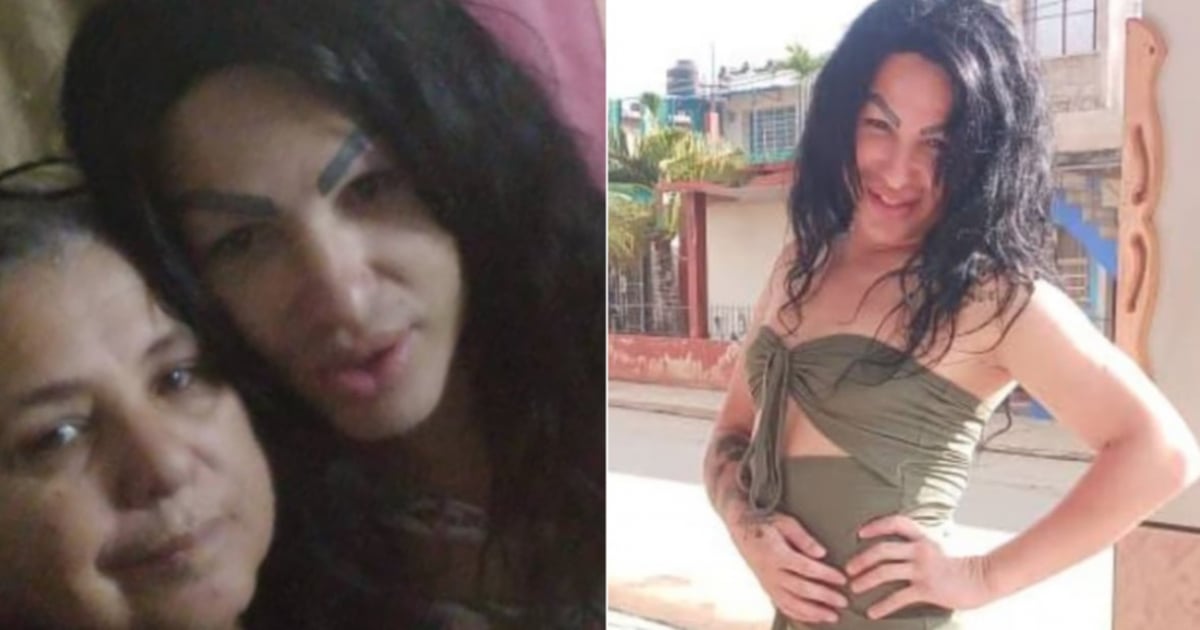Brenda Díaz, a Cuban trans activist sentenced to over 14 years for her involvement in the July 2021 anti-government protests, has revealed that her gender identity was consistently disregarded during her imprisonment. Despite her family's persistent appeals, the prison system failed to respect her identity.
Her release came as part of a broader prisoner release initiative announced by the Cuban government in mid-January. After nearly four years behind bars, Díaz told EFE news agency that the news of her release left her in complete "shock." She recounted the mistreatment she endured while incarcerated.
"I am a different person now. I am no longer the Brenda I used to be. I was held with 80 men. I was never treated as a trans person; they referred to me as 'the inmate, the prisoner.' When I asserted that I was a trans woman, they insisted otherwise: 'You are a man,'" Díaz stated.
Brenda revealed she faced severe physical humiliation, including having her hair forcibly shaved, which profoundly affected her. "After maintaining my feminine appearance for so long, seeing myself like that... it was a huge shock," she recounted.
Additionally, she was denied access to women's undergarments, a clear reflection of the systemic disregard for her gender identity within the prison system.
Upon learning of her impending release, Díaz was so overwhelmed that she couldn't even pick up the phone to call her mother. She had spent three years and seven months confined in a men's prison unit.
"It felt unreal that, after all this time, I would be able to reunite with everyone," Díaz expressed. She gave the interview alongside her mother, Ana Mary, who had tirelessly advocated against the abuses her daughter faced in the male prison.
Ana Mary shared that upon hearing the news of her daughter's release, she screamed with such joy that neighbors rushed over, fearing something was wrong. "They came thinking something had happened to me. It was the most emotional moment of my life because I couldn't foresee the day she would be free," she emphasized.
To celebrate her freedom, Brenda hosted a gathering at her home to reconnect with friends and family. Her story has become a beacon of hope for the trans community in Cuba. She also resumed activities she cherished before her imprisonment, like doing her nails.
"That has given me more strength. I believe that in those places, every individual should be treated according to who they are and how they wish to be," she declared.
Despite the 2022 passage of the Family Code, which legalized marriage and adoption for same-sex couples, Brenda Díaz believes that discrimination against trans individuals remains prevalent in Cuba. "If I am a trans person, treat me accordingly," she insisted.
The Cuban regime had vowed to free 553 prisoners following President Joe Biden's decision to remove Cuba from the list of state sponsors of terrorism. However, a week later, when Donald Trump reversed the decision and reinstated Cuba on the list, the regime halted the releases.
Understanding the Challenges Faced by Trans Individuals in Cuban Prisons
How was Brenda Díaz treated in prison?
Brenda Díaz faced significant mistreatment in prison, including being held with male inmates, being addressed as a male, having her hair shaved, and being denied women's clothing, all of which disregarded her trans identity.
What impact did Brenda Díaz's imprisonment have on her identity?
The imprisonment deeply affected Brenda Díaz, altering her sense of self and identity. She described herself as a different person after enduring years of systemic disregard for her trans identity.
What significance does Brenda Díaz's case hold for the trans community in Cuba?
Brenda Díaz's case has become a symbol of the ongoing fight for trans rights in Cuba, highlighting the systemic issues and discrimination faced by the community within the country's institutions.
